Pre MEPC72 Media Briefing regarding heavy fuel oil use by ships in the Arctic.
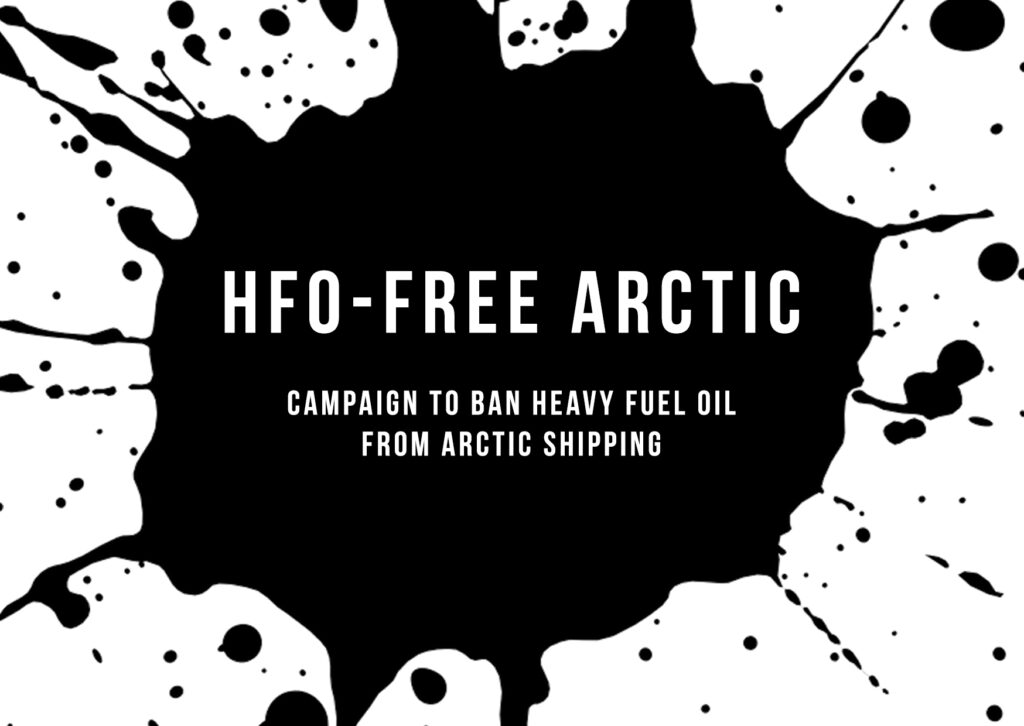
The agenda of MEPC 72, which runs from 9-13 April at IMO HQ in London, includes discussion on reducing the risks posed by HFO. In addition, a number of papers have been submitted from member states and NGOs “on the development of measures to reduce risks of use and carriage of heavy fuel oil as fuel by ships in Arctic waters”.
Infographic: How Can We Reduce Black Carbon Emissions From International Shipping?
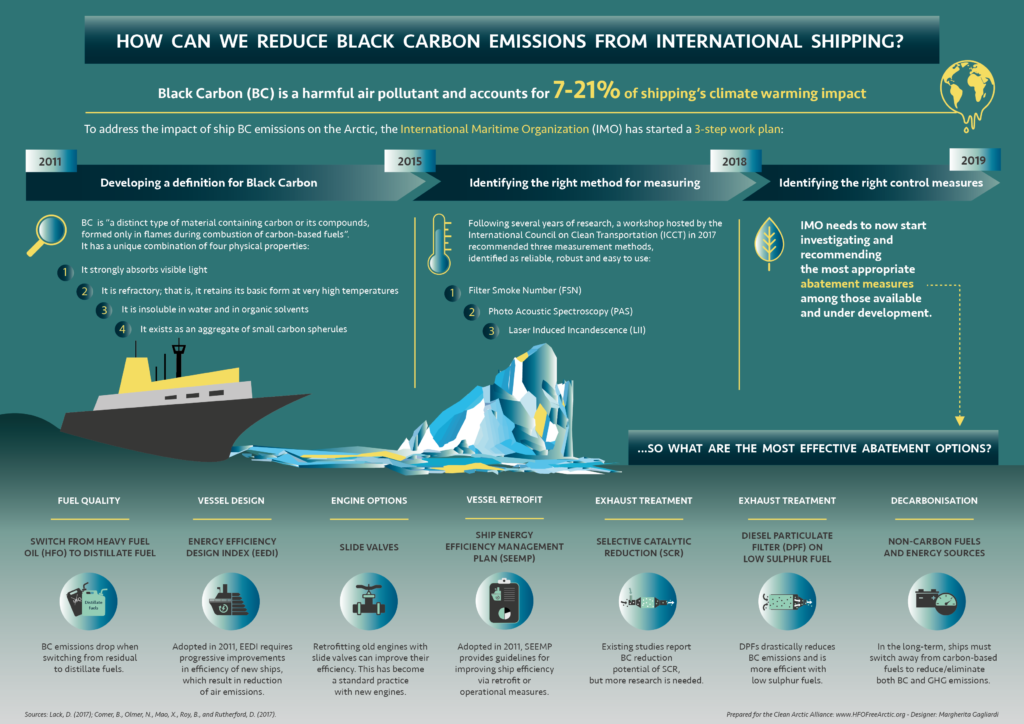
To address the impact of ship Black Carbon (BC) emissions on the Arctic, the International Maritime Organization (IMO) has been tasked with developing a definition for black carbon, deciding on best methodology for measuring black carbon, and identifying abatement options. A considerable number of black carbon abatement options exist with varying reduction potential of BC emissions. Some are readily available, some in development, some expensive, some cheaper. This infographic goes through some of the most effective abatement options and depicts their advantages and drawbacks based on the most up to date scientific literature.
The Arctic Commitment
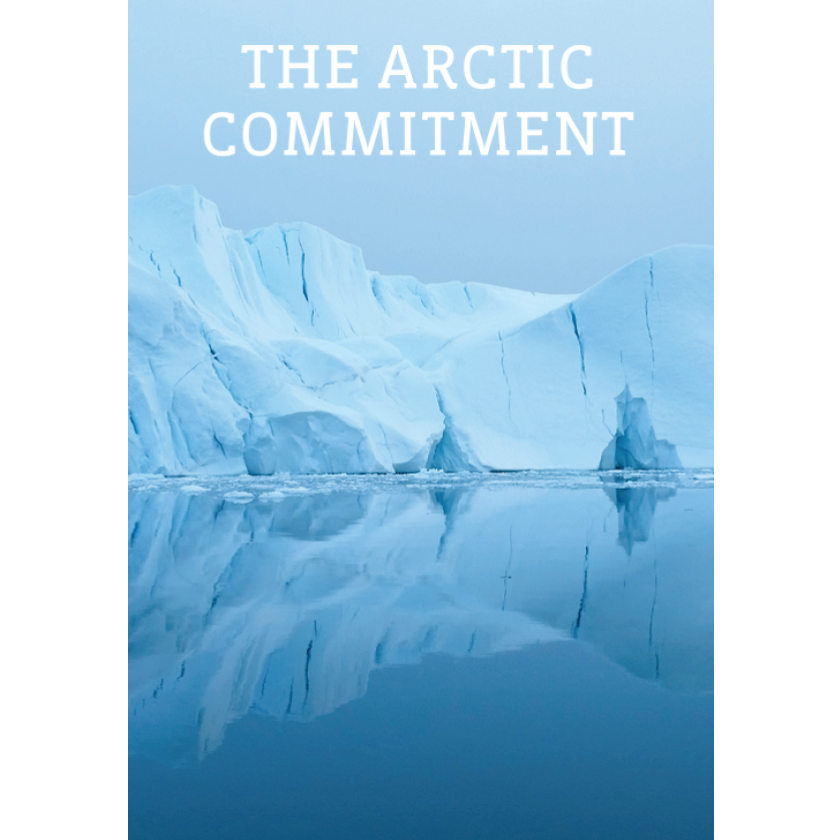
Launched in January 2017 by the Clean Arctic Alliance and cruise ship operator Hurtigruten, this leaflet explains the aims of the Arctic Commitment which are to encourage stakeholders to urge the IMO to phase out HFO use in Arctic shipping and urge shipping companies in the Arctic to switch from the use of HFO to cleaner fuels.
Rise in Arctic Shipping Traffic is Bad News for Black Carbon Emissions
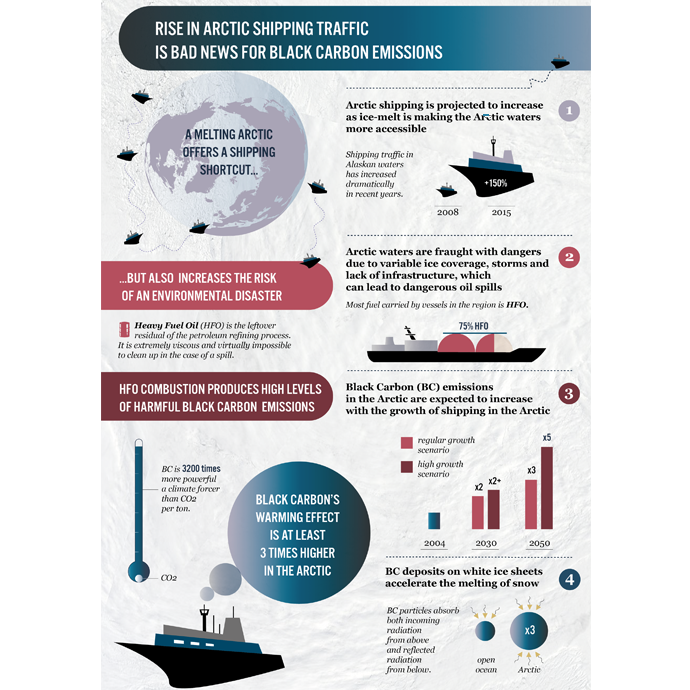
An infographic by the Clean Arctic Alliance
As new shipping routes open in the Arctic and traffic increases, Black Carbon (BC) emissions from combustion of heavy fuel oil (HFO) further exacerbate the melting of ice and increases the cause of health risks, shipping incidents, and their associated economic cost. There are cleaner solutions available.
Heavy Fuel Oil: A Threat to the Arctic
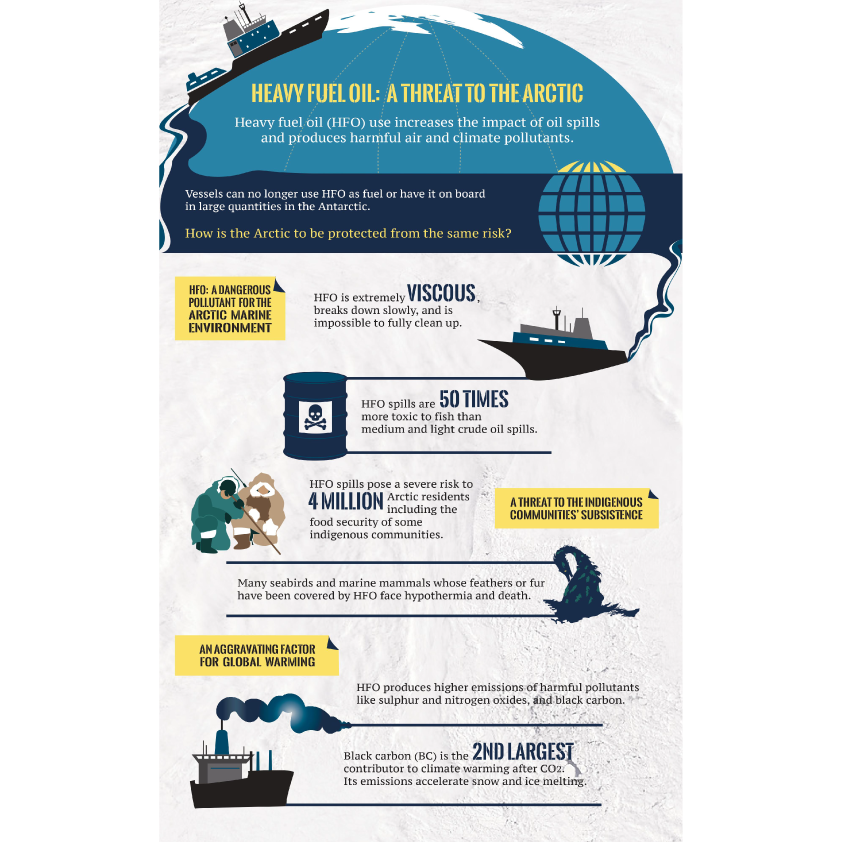
An infographic by the Clean Arctic Alliance
Compelling facts and figures demonstrating the many risks associated with the use of heavy fuel oil (HFO). The document makes the case for the rapid phasing out of HFO use from Arctic shipping and offers some solutions on measures to protect the Arctic environment.
The real costs of HFO spills
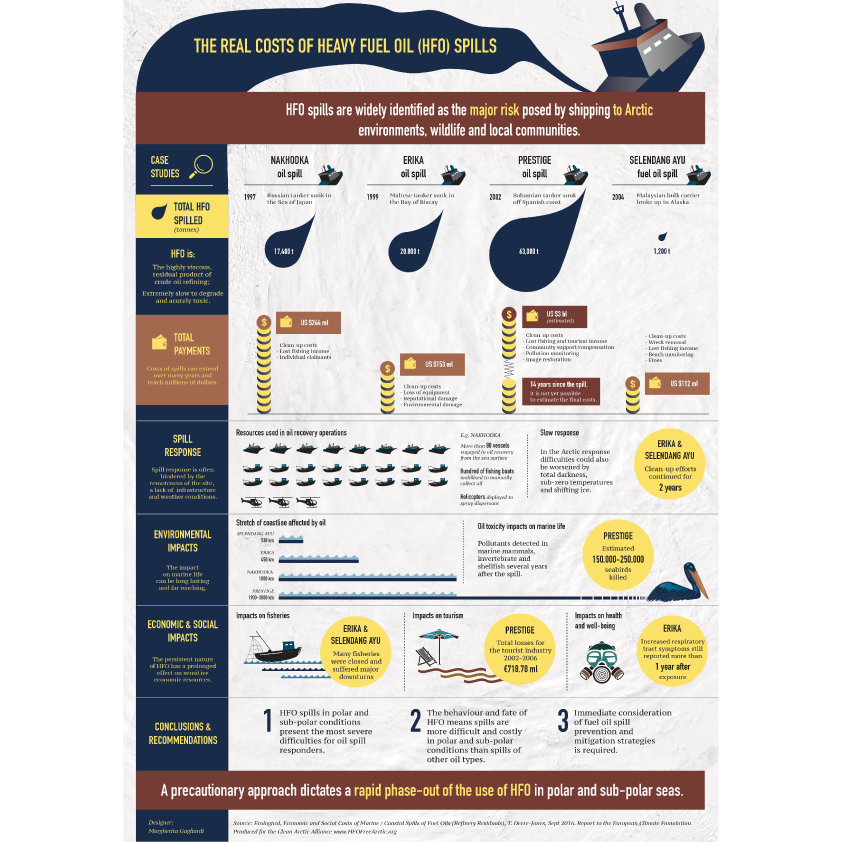
An infographic by the Clean Arctic Alliance
Drawing on the lessons from the social, economic and environmental costs of four major heavy fuel oil spills, this document highlights how a precautionary approach should be applied to protect the Arctic environment from the disastrous consequences of a potential HFO spill.
Clean Arctic Alliance Position Statement
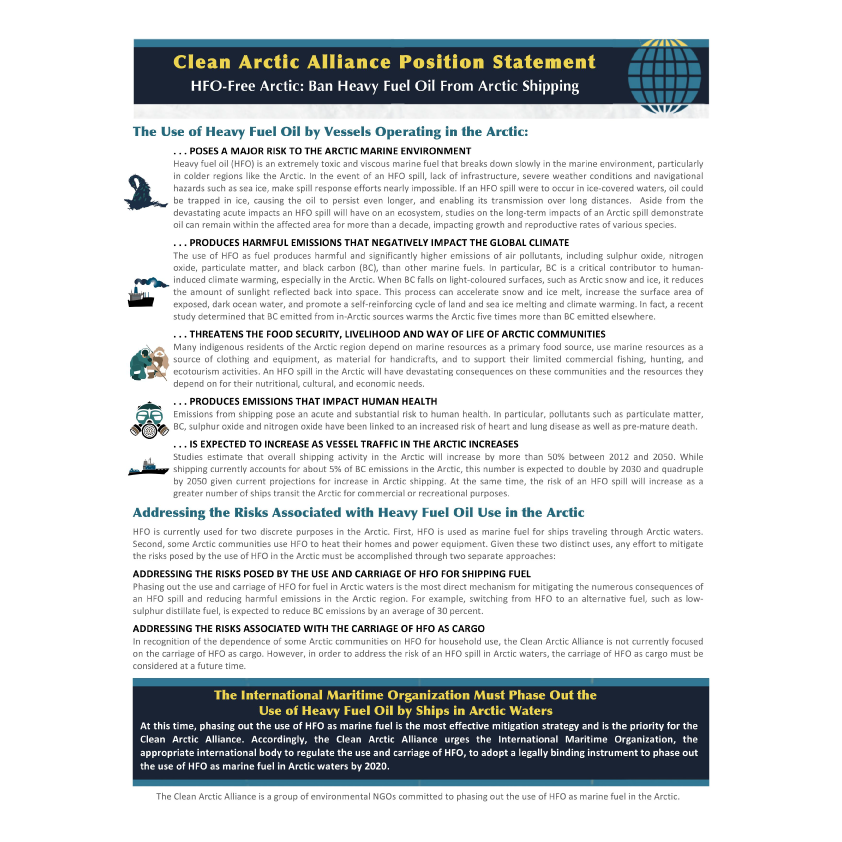
Position Statement by the Clean Arctic Alliance – HFO-Free Arctic: Ban Heavy Fuel Oil from Arctic Shipping
The use of heavy fuel oil (HFO) by vessels operating in the Arctic poses a major risk to the Arctic marine environment. It produces harmful emissions that negatively impact the global climate, threatens the food security, livelihood and way of life of Arctic communities and produces emissions that impact human health. As the use of HFO is expected to rise as vessel traffic in the Arctic increases, the Clean Arctic Alliance strongly advocates the phasing out of the use of HFO as the most effective mitigation strategy as a matter of priority.
Risks & challenges of Heavy Fuel Oil use in the Arctic
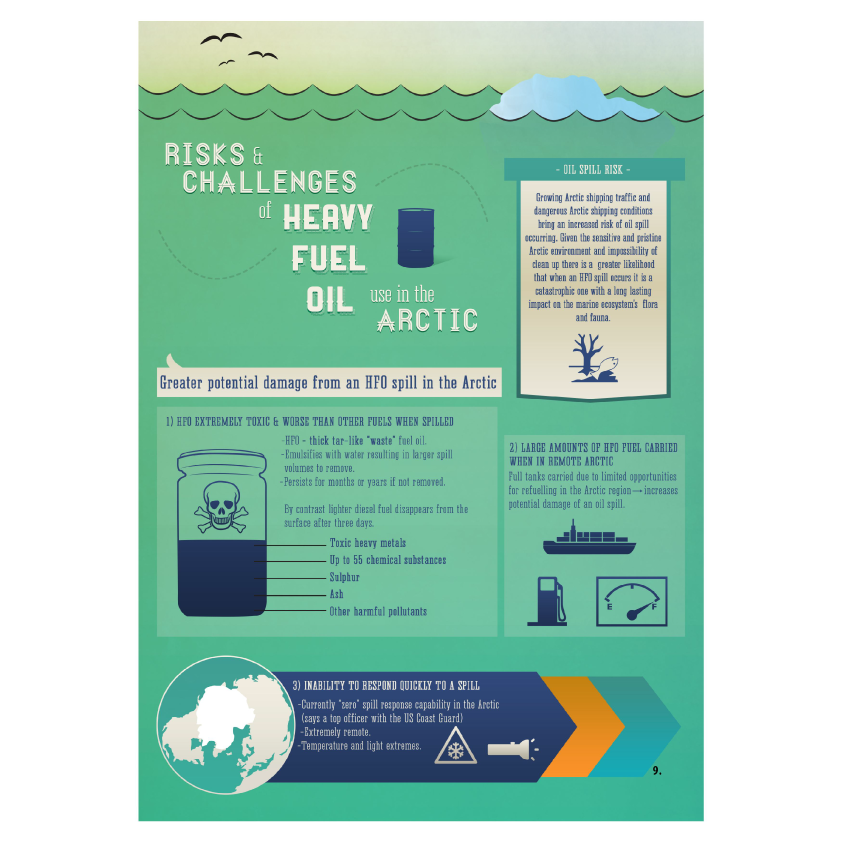
An infographic by the European Climate Foundation
Increased shipping activities and changeable shipping conditions provide the backdrop of this comprehensive and visual representation of the many threats facing the Arctic environment, from heavy fuel oil spill, with catastrophic long-lasting consequences on this remote and vulnerable ecosystem, local indigenous populations’ health and food security to illegal waste sludge dumping. Increased Black Carbon and other air pollutants emissions only accelerate climate change and add to the problem of ice melt.
Ecological, economic and social costs of marine/coastal spills of fuel oils (refinery residuals)
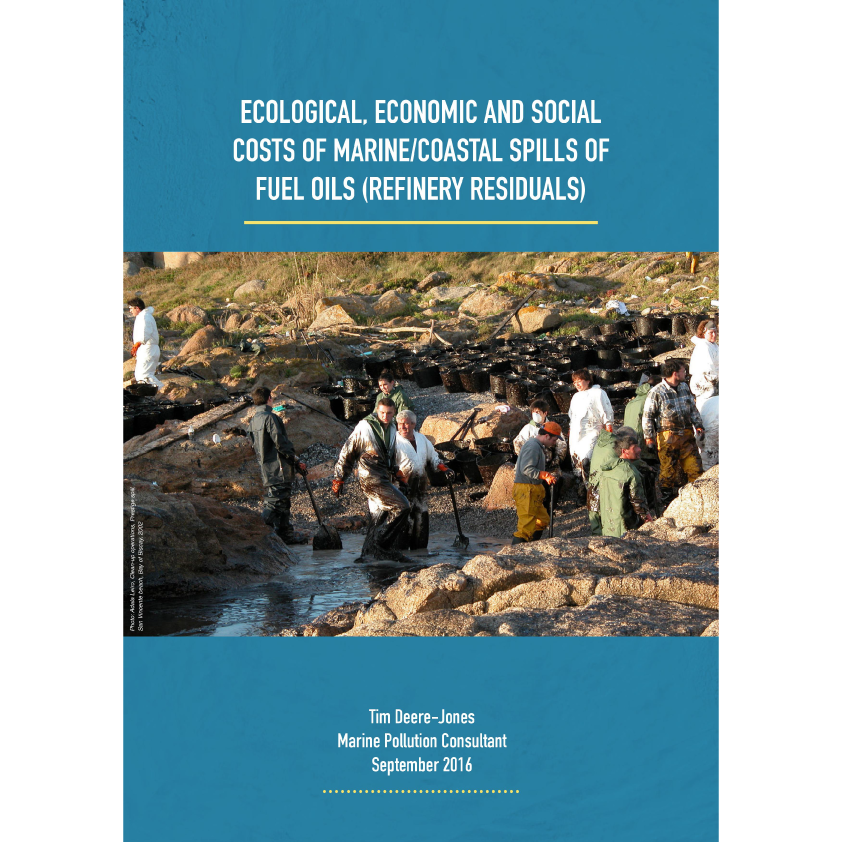
A report by Tim Deere-Jones
The growing demands for shorter, quicker and less expensive sea routes around the northern hemisphere coupled with Arctic warming is generating a significant increase in vessel traffic through Arctic waters. This report offers a brief review of the behaviour and fate of both heavy fuel oil (HFO) and medium fuel oil (MFO) spills in polar, sub-polar and similar cold water marine environments. It also offers a brief review of the impacts of such spills and the relative “costing” of some of the impact parameters of such spills.
Five briefings: Heavy Fuel Oil use by flag state | ship type| ship owner| cruise ships | fishing vessels in the IMO Polar Code Arctic, 2015
Five briefing papers prepared by Bryan Comer PhD, The International Council on Clean Transportation (ICCT)
The use of heavy fuel oil (HFO) as a marine fuel poses serious environmental and economic risks, especially in ecologically sensitive areas like the Arctic. Using HFO is risky not only because of potential fuel oil spills, but also because burning it produces harmful air and climate pollutants, including black carbon (BC). As ship traffic increases in the Arctic, the risk to the Arctic environment and its peoples will also increase.
These 5 briefings look at HFO use by flag state, ship type, ship owner, cruise ships,| fishing vessels in the IMO Polar Code Arctic, 2015.

